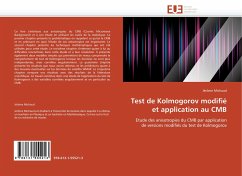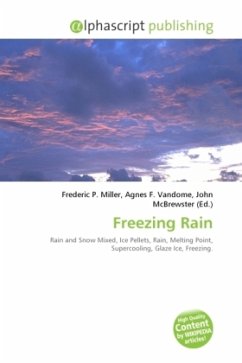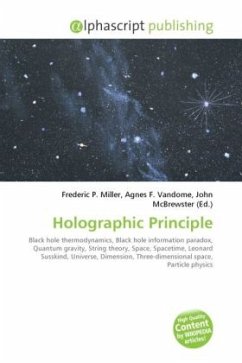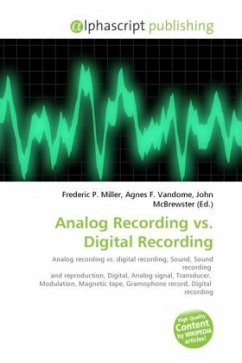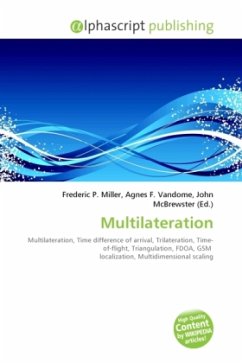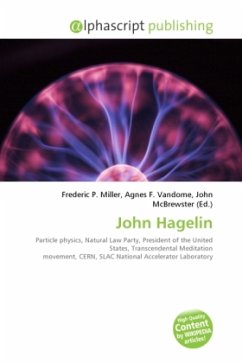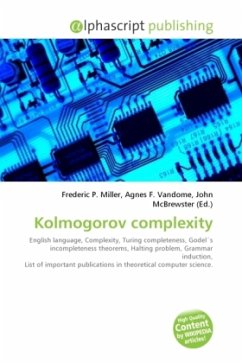
Kolmogorov complexity
Versandkostenfrei!
Versandfertig in 6-10 Tagen
23,99 €
inkl. MwSt.

PAYBACK Punkte
12 °P sammeln!
In algorithmic information theory, the Kolmogorov complexity of an object such as a piece of text is a measure of the computational resources needed to specify the object. The first string admits a short English language description, namely "ab 32 times", which consists of 11 characters. The second one has no obvious simple description (using the same character set) other than writing down the string itself, which has 64 characters. More formally, the complexity of a string is the length of the string's shortest description in some fixed universal description language. The sensitivity of compl...
In algorithmic information theory, the Kolmogorov complexity of an object such as a piece of text is a measure of the computational resources needed to specify the object. The first string admits a short English language description, namely "ab 32 times", which consists of 11 characters. The second one has no obvious simple description (using the same character set) other than writing down the string itself, which has 64 characters. More formally, the complexity of a string is the length of the string's shortest description in some fixed universal description language. The sensitivity of complexity relative to the choice of description language is discussed below. It can be shown that the Kolmogorov complexity of any string cannot be too much larger than the length of the string itself. Strings whose Kolmogorov complexity is small relative to the string's size are not considered to be complex. The notion of Kolmogorov complexity is surprisingly deep and can be used to state and prove impossibility results akin to Gödel's incompleteness theorem and Turing's halting problem.



